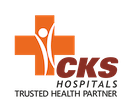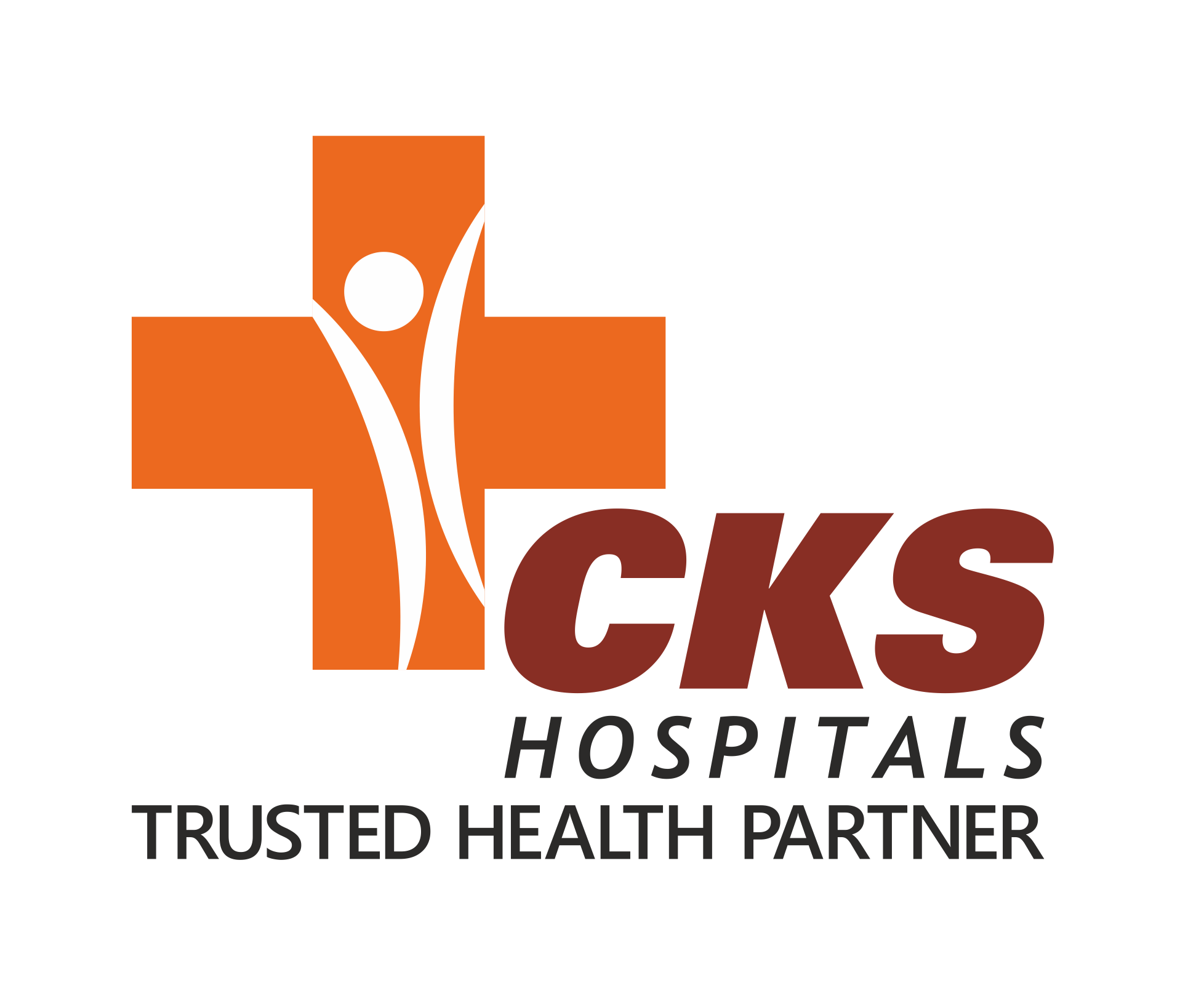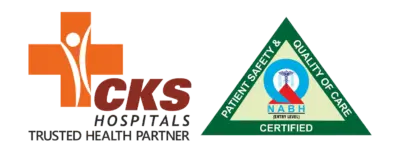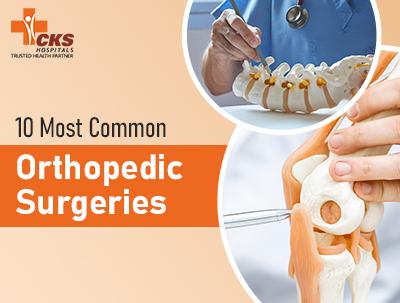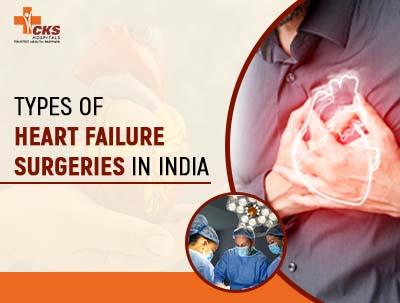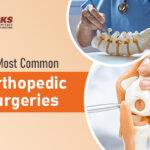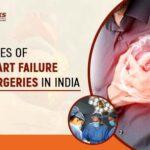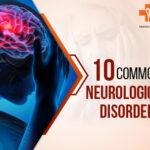Chest pain is of different forms, ranging from severe to moderate. It feels like a crushing or burning sensation in the chest. In many of cases, the pain reaches up to the neck, into the jaw, and then further extends to the back or down to one or both arms.
Many problems can cause chest pain. The most dangerous causes include the heart or lungs Because it can cause a serious problem that leads to immediate medical help. These symptoms cause a major threat to life and we at CKS provide the Best chest pain treatment in Jaipur.
What is chest pain?
Chest pain is something that is very common and can happen to anyone. It refers to a condition when pain is felt in any part of your chest. The discomfort may be felt in your back, lungs, ribs, muscles, or right in the middle of your chest. It can be acute or dull. You might experience tightness, achiness, or a sensation that your chest is being crushed or squeezed.
Chest discomfort is frequently periodic (lasting for seconds, minutes, or hours), But it can also be chronic (lasting six months or more).
What are the symptoms of chest pain?
Depending upon what is causing the condition, chest discomfort can generate a variety of symptoms. Often, the problem has nothing to do with the heart – though there’s no way to determine it without consulting a doctor.
Types of Chest Pain
1. Due to Heart conditions
Although chest pain is frequently associated with heart disease, many people who have heart disease report a vague discomfort that isn’t always characterised as pain. In general, chest pain caused by a heart attack or another cardiac disease may be characterised or connected with one or more of the following:
- You might feel pressure, fullness, burning sensation, or tightness in the chest.
- You might feel searing pain that reaches your back, neck, jaw, shoulders, and one or both arms.
- You might feel the pain that lasts for more than five minutes, worsens with activity, fades and reappears, or changes in intensity.
- You might observe breathing difficulties
- Excessive sweating
- Feeling dizziness or weakness.
- You might feel Nausea or vomiting.
2. Other Type of Chest pain:-
It might be difficult to tell the difference between heart-related chest discomfort and other forms of chest pain that are caused by a variety of reasons(Digestive issues, Muscle, and Bone issues). However, chest discomfort that is not caused by a cardiac disease is more commonly associated with:
- A sour taste or the impression of food returning to your mouth.
- Having difficulty swallowing.
- Pain that increases or worsens when you move your body.
- Pain that worsens when you cough or breathe deeply.
- Tenderness while pressing on your chest
- Pain that lasts for several hours
What are the Causes of Chest pain?
There are several reasons for chest discomfort, all of which need medical attention and due care. Following are some examples of heart-related causes of chest pain:
- Heart-related Causes:
- Heart attack
A heart attack is caused by a blockage of blood flow to the heart muscle, which is commonly caused by a blood clot. A severe chest is experienced by such a person.
- Angina
Angina is a type of chest discomfort caused by a lack of blood flow to the heart. This is frequently caused by the formation of thick plaques on the inner walls of the arteries that transport blood to the heart. These plaques constrict the arteries and impede blood circulation to the heart, especially during physical exercise.
- Dissection of the aorta
This potentially fatal illness affects the major artery flowing from the heart (aorta). When the inner layers of this blood artery split, blood is pushed between them, causing the aorta to burst.
- Swelling around the heart is inflamed (pericarditis)
This condition is characterized by intense discomfort that significantly grows/worsens while breathing.
Digestive causes
Chest discomfort can be caused by digestive system problems, such as:
- Heartburn.
This painful, burning sensation occurs behind the chest bone as stomach acid rises up the tube which joins the neck and stomach(Esophagus).
- Disorders of swallowing
Swallowing can be challenging and even painful when you have an oesophagal disorder.
- Gallbladder or pancreatic issues
Gallstones or gallbladder or pancreas inflammation can cause stomach pain that extends to the chest.
Muscles and Bone related causes
Some forms of chest discomfort are also caused by injuries or other abnormalities with the structures that make up the chest wall, such as:
- Costochondritis.
The rib cage cartilage, particularly the cartilage that connects the ribs to the breastbone, becomes inflamed and uncomfortable in this illness.
- Muscle aches.
Chronic pain disorders, such as fibromyalgia, can induce muscle-related chest discomfort that persists.
- Injured Ribs
Chest discomfort might be caused by a damaged or fractured rib.
Lung related causes
Chest discomfort can happen to a variety of lung illnesses as well, including:
- Blood clotting in the lungs (pulmonary embolism)
A blood clot that becomes lodged in a pulmonary artery can obstruct blood flow to lung tissue.
- Inflammation of the membrane that surrounds the lungs (pleurisy)
This illness might produce chest discomfort that intensifies when you cough or breath.
- Collapsed lungs
The chest discomfort associated with a collapsed lung usually starts quickly and lasts for hours, and it is usually accompanied by shortness of breath. When air seeps into the area between the lung and the ribs, the lung collapses.
- High blood pressure in the arteries of the lungs (pulmonary hypertension).
This illness affects the arteries that transport blood to the lungs, causing chest discomfort.
Other causes
- Panic attack
You may be suffering a panic attack if you have moments of acute terror accompanied by chest discomfort, a fast heartbeat, rapid breathing, excessive perspiration, shortness of breath, nausea, dizziness, and a fear of death.
- Shingles
Shingles, which are caused by a recurrence of the chickenpox virus, can cause discomfort and a band of blisters from the back to the chest wall.
Diagnosis of chest pain
Chest discomfort is not necessarily indicative of a heart attack. But that’s what doctors in the emergency department normally look at in the first instance. Since it’s the most urgent threat to your life. They may also check for potentially fatal lung problems including a collapsed lung or a blood clot and any other lung condition.
Also Read – Healthy Tips To Keep Your Heart Healthy
Immediate tests for chest pain
While evaluating chest pain some of the primary tests that health care may conduct are:-
- Electrocardiogram (ECG or EKG):-
This quick test measures the electrical activity of the heart. Sticky patches (electrodes) are placed on the chest and sometimes the arms and legs. Wires connect the electrodes to a computer, which displays the test results. An ECG can show if the heart is beating too fast, too slow, or not at all. Because injured heart muscle doesn’t conduct electrical signals in a typical pattern, the ECG may show that you have had or are having a heart attack.
- Blood tests.
Blood tests may be done to check for increased levels of certain proteins or enzymes typically found in heart muscle. Damage to heart cells from a heart attack may allow these proteins or enzymes to leak, over hours, into the blood.
- Chest X-ray test
An X-ray of the chest can provide information about the status of the lungs as well as the size and structure of the heart and main blood veins. A chest X-ray can also identify lung issues including pneumonia or a collapsed lung.
- Computerized tomography scan
CT Scan stands for computed tomography. A CT scan can identify a blood clot in the lung (pulmonary embolism) or aortic dissection.
Treatment of chest pain
The treatment required for chest pain depends heavily upon what is causing it. For Example – If a person is experiencing chest pain because of digestive issues treatment offered in this case, will be different from a person who is having chest pain due to cardiac issues. In India, there are professional Hospitals that have qualified doctors who are heart or chest specialists. Where we are the one who provides you get the best chest pain treatment in Jaipur.
Medications treatment for chest pain
Some of the common medicines used frequently to cure the cause of chest pain:-
- Relaxers for the arteries: Nitroglycerin, which is often administered as a pill under the tongue, relax heart arteries, allowing blood to flow more readily through the restricted gaps. Some blood pressure medications relax and expand blood arteries as well.
- Aspirin: If your chest discomfort is thought to be connected to your heart, you will most likely be prescribed aspirin.
- Thrombolytic medications: If you have a heart attack, you may be given these clot-busting medications. These are used to remove the clot that is preventing blood from reaching the heart muscle.
- Thinners of the blood: If you have a clot in an artery that feeds your heart or lungs, you will most likely be given medications that inhibit blood clotting to prevent further clot formation.
- Acid-reducing medicines: If your chest discomfort is caused by stomach acid splashing into your oesophagus, your doctor may recommend drugs that limit the quantity of acid in your stomach.
- Antidepressants: If you are experiencing panic attacks, your doctor may prescribe antidepressants to help regulate your symptoms. Talk therapy, such as cognitive-behavioural therapy, may also be suggested.
Surgical and other procedures for chest pain
If the chest pain gets too severe and dangerous then you need to go through some surgical procedures:-
- Angioplasty and Stent Implantation: Angioplasty is primarily performed to relieve chest discomfort caused by a blockage in an artery that supplies the heart. A catheter with a balloon on the end is inserted into a big blood artery, generally in the groin, and guided to the obstruction. The balloon is inflated to expand the artery, then deflated and the catheter is removed. A tiny wire mesh tube (stent) is frequently put on the exterior of the catheter’s balloon tip. When the stent is enlarged, it locks into place to keep the artery open.
- Bypass Surgery: During this operation, doctors utilize a blood vessel from another region of the body to provide an alternate path for blood to travel around the blocked artery.
- Emergency Dissection repair: An aortic dissection, a potentially fatal disorder in which the artery that transports blood from the heart to the rest of the body ruptures, may necessitate immediate surgery.
- Reinflation of the lungs: If you have a collapsed lung, your doctor may place a tube into your chest to re-inflate it.
Chest Pain is a condition that is becoming very common these days and requires urgent medical attention. In this fast-changing world, every aspect of our life has been drastically changed such as work-life balance, food habits, health preferences, environmental changes(Pollution, Increasing CO2, etc.)
Get the best services for all your chest pain-related complications with us. We are one of the best hospitals for Best Chest Pain treatment in Jaipur, Rajasthan. Don’t risk your life and your loved ones schedule an appointment with us.
